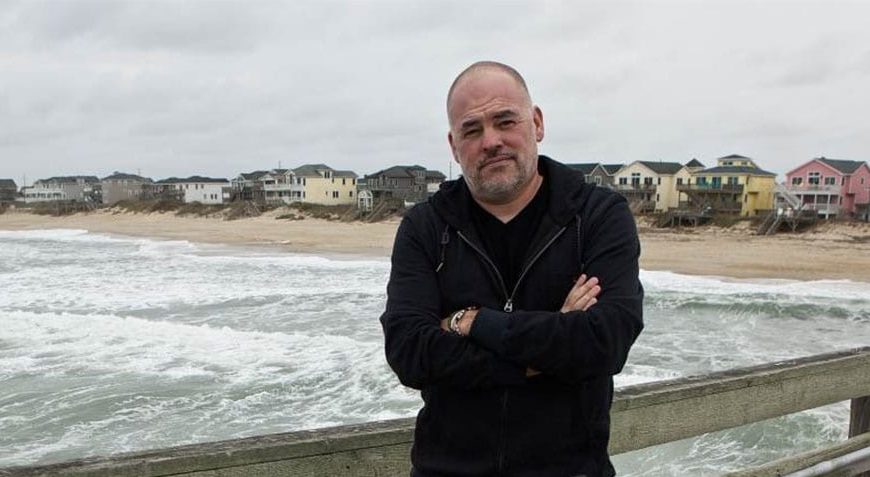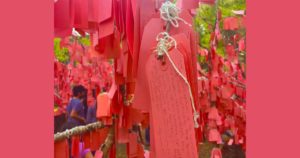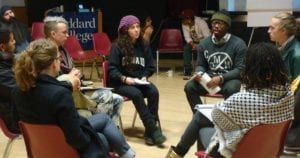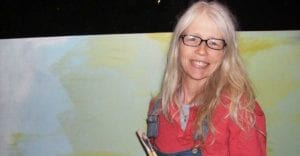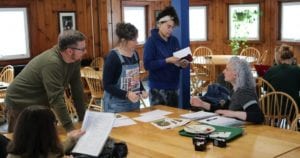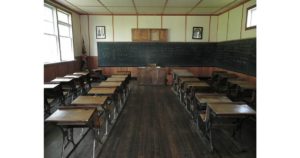 by Ian August, MFAW G3
by Ian August, MFAW G3
“It all just feels so… personal.”
N is a new student of mine, one who has worked in the theater industry for years, but never written a play before. He called me before our first week of class, and I could tell he was feeling intimidated by the process of playwriting. We discussed some exercises he could do and some of his favorite plays and playwrights, and I think I assuaged the majority of his concerns. His one lingering reservation:
“It’s just so personal.”
Personal. He is pained as he says it—I can feel his anxiety through the phone. I tell him, it should be personal. It’s all personal. But this is little comfort. We continue our conversation, but there is a subtext behind everything that follows; a tiny whisper lingering in his voice that says: What if I put too much of myself of the page? What if I reveal something I don’t want to reveal?
I have to admit, that level of vulnerability—it intimidates me, too. During talkbacks—which is one of the more painful parts in the development of new theatrical works—audience members hunger for this connection. “Which one are you?” they ask, salivating at the thought of being able to recognize the writer in the work. I deflect—or I deny the accusation, as though to admit that one or more of the characters’ experiences is based on my own would be seen as a writerly weakness. “None of them are me, and yet they all contain elements of me,” I say coyly, and I flash a smile, and they seem satisfied with this. It’s a deflection, a well-rehearsed deflection.
I tend to keep my inventions at arms length. My plays are often driven by character and history—and the latter often affords me a healthy distance from the former. My plays run the historical spectrum of Ancient Rome to contemporary China, but the characters are, for the most part, recognizable beyond their historical context. They are love-struck and jaded, greedy and benevolent, naïve and Machiavellian and jealous and noble and impassioned—and I am all of those things, I think. But I would be the first to insist: their experiences are not my experiences—their lives are all their own.
This past semester, my advisee group, under the instruction of Deborah Brevoort, selected a single play to read and annotate together, followed by a virtual discussion with the playwright. The chosen play, a one-man piece called The Gun Show, by E.M. Lewis, has been making the rounds regionally for the last few years. Its world premiere was at the 16th Street Theater in Chicago in 2014, and has since been seen in New York, Los Angeles, Trenton, Portland, and most recently, as part of the International Fringe Festival in Edinburgh, Scotland. The play is an autobiographical exploration of the story of guns in America, coupled with five true stories of the playwright’s own experiences with guns. The stories of the playwright are funny and harrowing and frustrating and heartbreaking, but all true. And in order to allow herself some distance from the material, the playwright has instructed that the piece be performed by a man.
I’ve known E.M. since 2011, when she moved to New Jersey after being awarded the Hodder Fellowship at Princeton, University. She joined the Passage Theatre Play Lab, a playwriting group I co-founded in 2006 under the umbrella of the Passage Theatre Company in Trenton. We met twice a week, and I got to know E.M. pretty well. I drove her to and from meetings where we discussed Star Trek and Peter Jackson. We had writing dates in her rented cottage where we typed furiously in respective corners of her living room, her Maine Coon, Joe, giving me side eye from his favored spot on the windowsill. We went to local concerts and attended each other’s readings and cheered the other on with every step.
I didn’t ask about her personal life—although she knew everything about mine. She offered up anecdotes about her experiences in L.A., her grad school, her life in rural Oregon, her family—but there was always a limit. A stopping point. But E.M. is not the sort of person whose life you pry into. She is the kind of person who is so generous with her time and support and sensitivity that asking anything more of her would feel… inappropriate. If she had anything else to open up about, she would do so in her own time.
A few weeks before she was set to move back to Oregon in 2014, she sent me a copy of this new play she had been working on: The Gun Show. I admit it sat on my computer for the better part of those weeks. It was only on the day before her move, the morning I was to help her pack up all of her belongings to be shipped across the country, that I first read the play.
This play is personal. Deeply personal. Unflinchingly personal.
E.M. was opening up to us.
“I didn’t set out to write an autobiographical play,” she admitted to us in our group discussion, “I didn’t ever intend to, and was as surprised as anyone when it began to reveal itself at the end of my pen.
“It wasn’t easy to write,” she added. “There may have been drinking. There was definitely crying. I remember being in a rehearsal feeling like I was going to throw a glass at my director’s wall, or throw up.”
I am blown away by her vulnerability; even in our group e-mail exchange she is open and unguarded about her process. The topic of gun violence is enough to give me hives, but to explore it in the way Lewis does in Gun Show is next level. How do you get this personal? Lewis offers a piece of herself that even those closest to her did not know, and she does it in a way that is compelling, and artful, and subversive. I suddenly find myself like those audiences who are hungry for answers at the talkbacks, for connective threads that can give us some sort of insight into how to access this vulnerability. We pressed E.M. for more.
“Writing from personal experience, whether fictionally or non-fictionally, comes with its own challenges. How can we be sure we are being rigorous enough with ourselves as artists when we are sensitive about something as people? Do we have enough perspective to write about the subject? Will our emotions fuel our writing or get in the way of it?”
It’s easy to forget, I think, how much of ourselves we offer when we put pen to paper. That the worlds we create and inhabit in our writings speak as much of us as they do of the worlds themselves. That they display a part of who we are in a way that simply voicing our opinions and beliefs cannot. Because we couch our feelings in narrative, we hide those feelings in plain sight in the characters we create.
“Don’t be afraid to get personal,” E.M. advised, “The Heidi Chronicles was personal. The Glass Menagerie was personal. Long Day’s Journey into Night. Fences. Yellow Face. Wit. The Normal Heart. There is a long tradition of beautiful plays that came from deeply personal places in the playwrights’ hearts.”
I think I’ll take it one step further. I think we have a responsibility to embrace the personal. We have the duty, as creative writers, to reach deep into the well of our emotional selves, and pull out something so honest, so real, that it transforms itself from the deeply personal to the broadly universal. It’s a challenge I present myself as I work towards this MFA, and one that I offer up to who any who read this. Embrace the personal, no matter how terrifying it may be, for it’s the only way we can offer up our words as truth.
And for N, the student whose tremulous statement began his playwriting experience?
“It’s just so personal.”
I say, “Good.”
Ian August is a NJ based playwright and lyricist, whose works have been performed across the U.S., as well as in Canada, Australia, the UK, South Korea and Bermuda. His full-length plays include: The Goldilocks Zone, (Passage Theatre Company), Donna Orbits the Moon (NJ Repertory Company, Utah Contemporary Theatre; Barbour Memorial Playwright Award, 2010), Missing Celia Rose (NYC Summer Play Festival; Orlando Shakespeare Theater’s “Playfest 2009″; Bermuda Musical and Dramatic Society), Submitted by C. Randall McCloskey (2011 NY Intl. Fringe Festival), Natural History (2009 NY Intl. Fringe Festival),The Aisling (2009 Heiress Productions New Play Series Award), The Moor’s Son, Interviewese, The Excavation of Mary Anning, Displaced, Brisé, and Cobbler. Mr. August’s short play, Le Supermarche, or What I Did for Lunch, was a winner of the 31st Annual Samuel French Off-Off Broadway Short Play Festival, and published in a 2006 anthology. Other works have been published by The Pitkin Review, Smith and Kraus Publishing and the One-Act Play Depot. Mr. August is a founding member of the Princeton-based Witherspoon Circle and is a graduated member of the Philadelphia playwriting workshop, The Foundry. Spring 2018 will mark his G4 semester with Goddard College.

